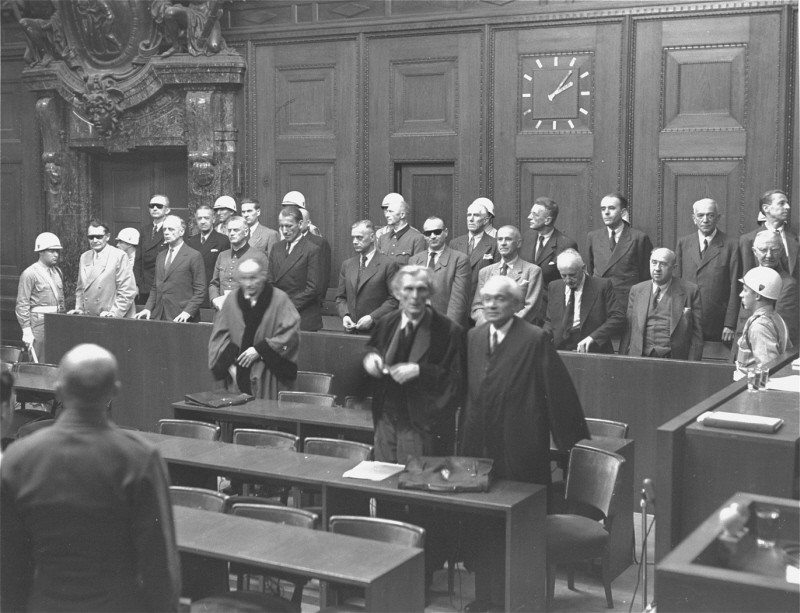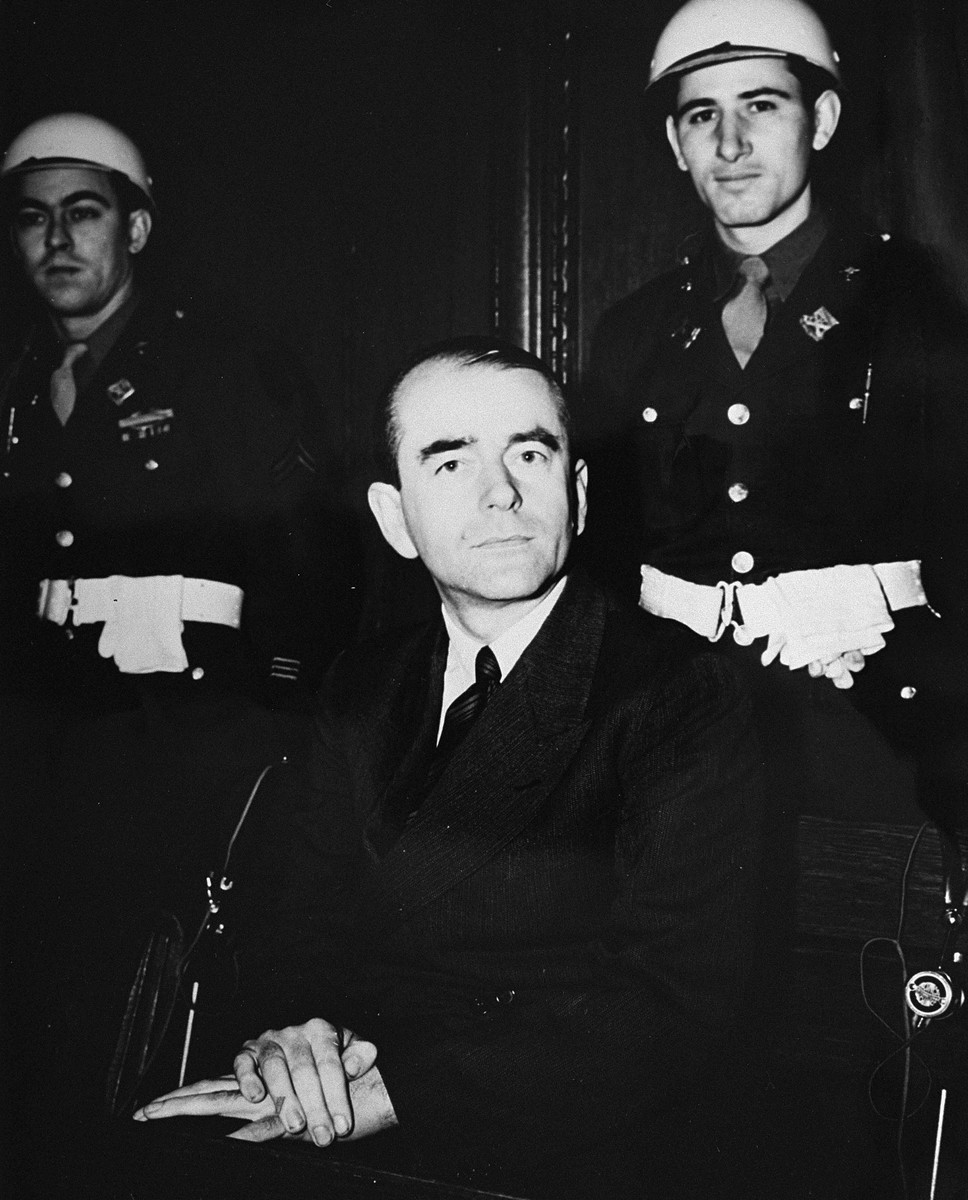
Albert Speer
In the immediate aftermath of the Holocaust, the world was faced with a challenge—how to hold individually accountable those German leaders who were responsible for the commission of monstrous crimes against humanity and international peace. The International Military Tribunal (IMT) held in Nuremberg, Germany, attempted to face this immense challenge. On October 18, 1945, the chief prosecutors of the IMT brought charges against 24 leading German officials, among them Albert Speer.

Albert Speer (1905–1981) was a trained architect. After joining the Nazi Party in 1930, Speer became Adolf Hitler's personal architect. In 1942, he was named Minister of Armaments and Munitions, assuming significant responsibility for the German war economy. In this position, Speer used millions of forced laborers to raise economic production.
Speer was found guilty on counts three and four (war crimes and crimes against humanity) at the International Military Tribunal at Nuremberg. He was sentenced to 20 years in prison. He was released in 1966.
Critical Thinking Questions
The Nazi regime required the active help or cooperation of professionals working in diverse fields who in many instances were not convinced Nazis. How did Speer and other Nazi leaders use their positions of power to put their radical ideas into practice?
How did Speer defend his actions and choices at the IMT? How do leaders of governments and organizations accused of mass atrocities rationalize their choices?

